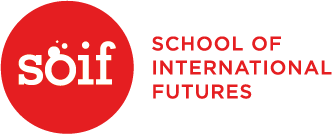At the International Studies Association 2014 annual conference in Toronto, Cat Tully organised a Roundtable entitled ‘Bridging the Gap: The Art and Practice of Strategic Foresight in International Relations’. About 45 of us discussed the role of Strategic Foresight in International Relations. We had a great mix of practitioners and academics, including, Antti Kaski, Rob Del, Jairus Grove, Andrew Dorman, Deborah Larson, Kari Möttölä, Josef Teboho Ansorge, Philippe Dufort, Peter Feavor, and Aubrey Yee. There was also a super rich contribution from participants on the day, and the approximately 50 respondees from the survey on strategic foresight in IR that was carried out in the weeks leading up to the Roundtable.
Some thoughts that particularly stood out from this rich discussion:
- Definitional issues still need to be carefully negotiated when discussing Strategic Foresight. There was some agreement around a two sentence definition of Strategic Foresight, but differences were clear around the purpose of and approach to the field (incremental/predictive versus long-term/alternatives). Scoping this out and formalising a common language that can embrace both but avoids crossed wires would be helpful.
- We had mainly policy-makers and practitioners and some academics in the room. Some big IR academic theorists were mentioned: Jervis, Ikenberry, Slaughter, Inayatullah, Gravo, Finger, Ward, Deudney. Could they be brought into the conversation?
- The field could benefit from an academic focus i.e. additional rigour and research on past usage/events, including what works and case-studies and explicitly teaching as a sunject in policy schools.
- Some interesting questions were raised about Strategic Foresight:
a. as experimentation;
b. as public engagement/dialogue;
c. links to decision-making/understanding the psychology of individual understanding of the future (super-foxes!);
d. as engaging with causality within conditions of complexity. - There is value in bringing different approaches together, in particular quantitative and predictive modelling.
The discussions at the RT were broadly in the same direction as the survey feedback. In addition:
- Over 75% of respondents said that IR was insufficiently covered in Universities, and 50% thought that it was very important to do so. (13 different countries).
- Identified the following main barriers: 1. Lack of interest, demand and credibility; 2. Lack of expertise among professors and students; 3. Culture of focusing on past and on theory (undervaluing skills); 4. Qualifications about Qualitative methodology.
- Main recommendations for University departments: Change of culture; Exchanges of ideas and dialogue across academics/practitioners, etc; Develop skills, methodologies and teaching in IR policy schools and also in specific policy themes
We will all individually continue to wrestle with the issues of impact and effectiveness of Strategic Foresight in our own organisations and work, but there is an opportunity to build – in the lead up to ISA2015 – on the positive interest in consolidating the role of SF in IR. Given the importance of big theoretical thinkers in establishing credibility in the IR field, Cat will submit a workshop proposal to bring some big thinkers to summarise their experiences and viewpoints on this subject. Cat will also pull together a panel of 5 paper proposals looking at the methodology (e.g. given the lead p to Global trends 2035, perhaps we could look a what we can learn from the past GT reports).
If you want to be involved in either event or have contributions you wish to make to the discussion, please email Zoe@fromoverhere.co.uk
